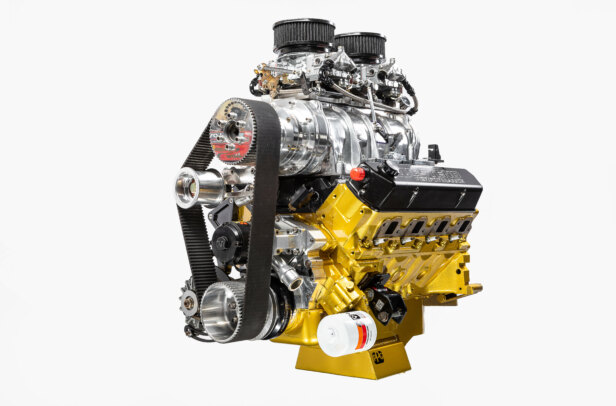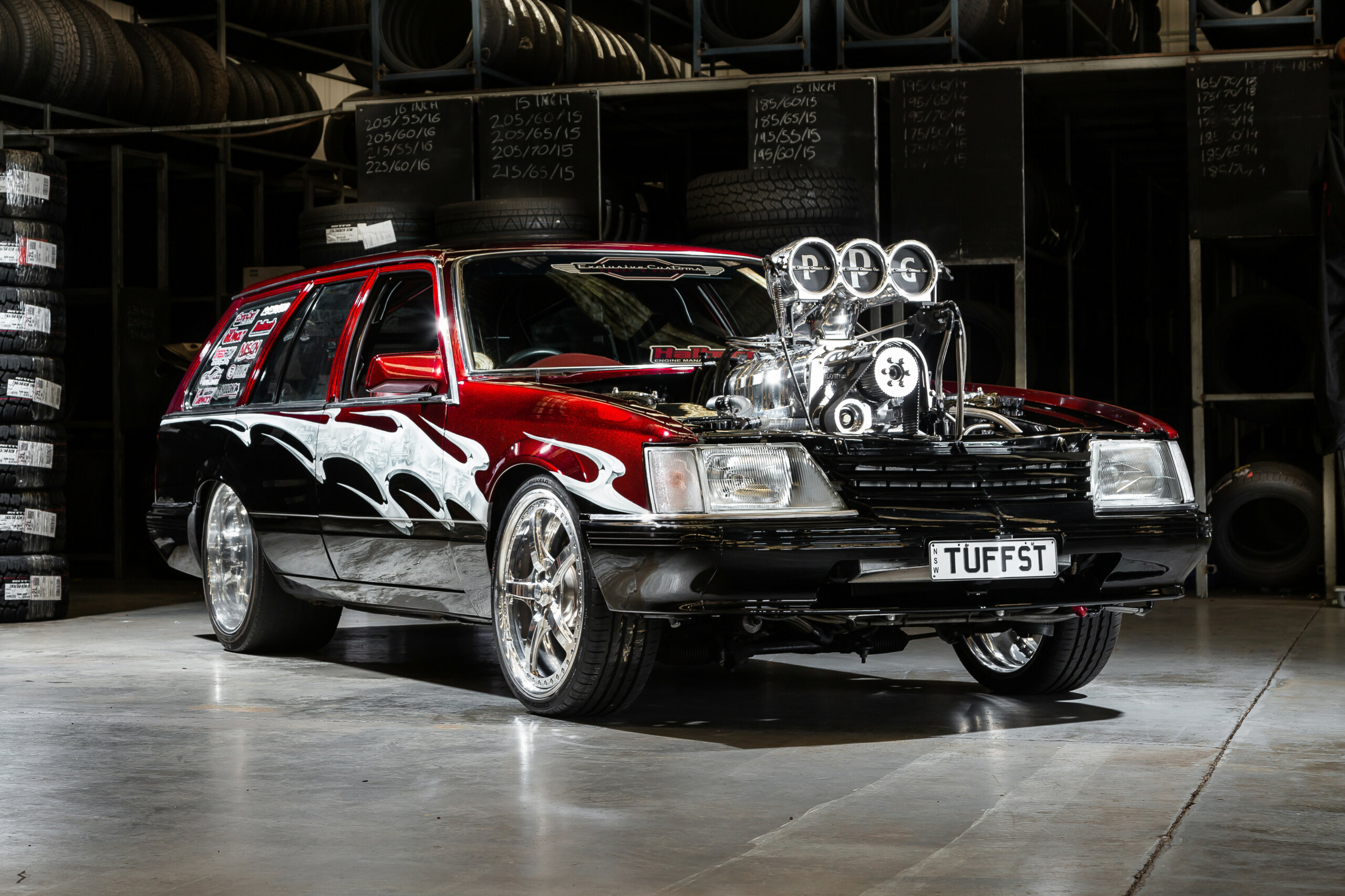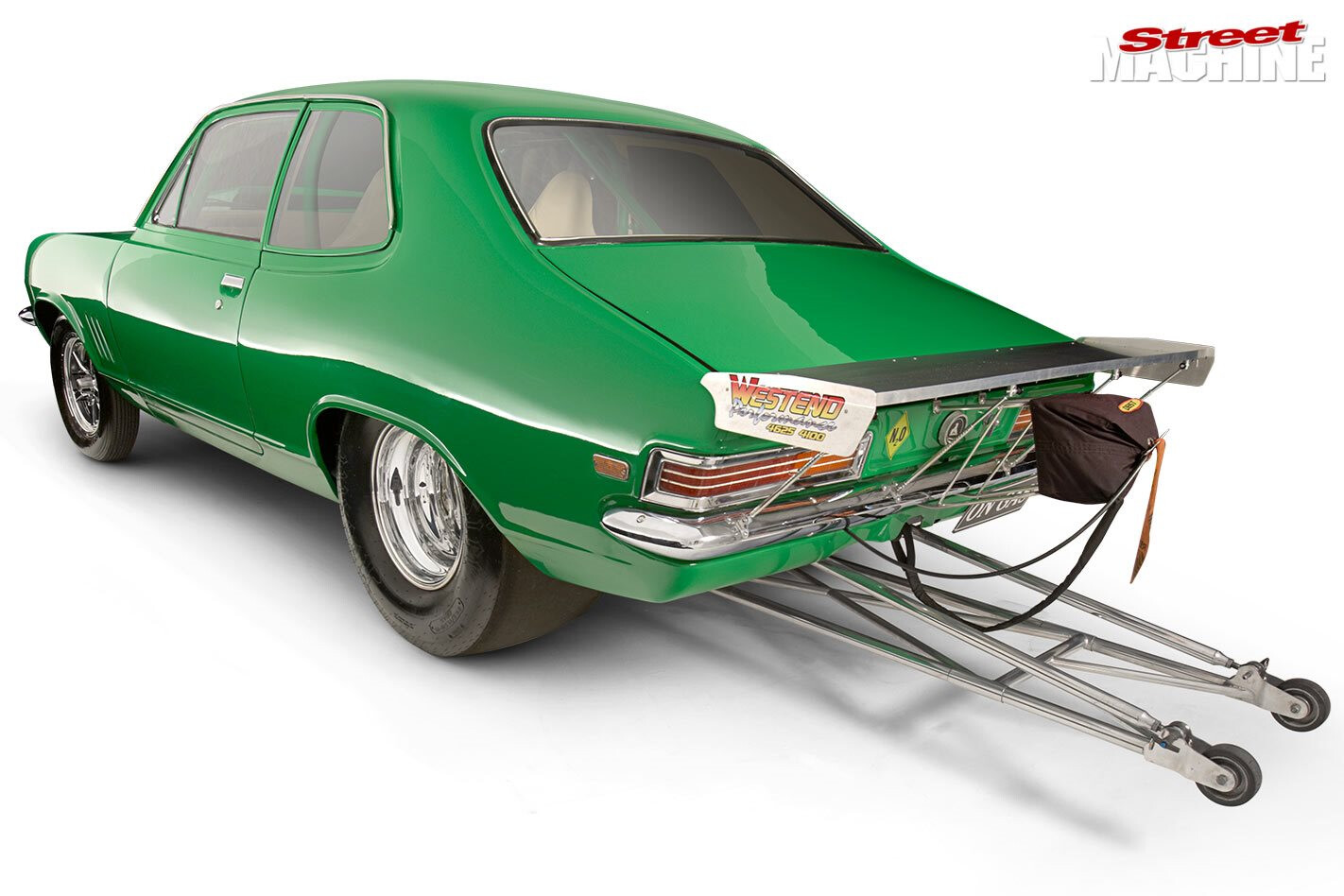Building a blown and injected, methanol-chugging bent-eight to withstand the rigours of top-level burnout competition is no easy thing. Sustained sky-high rpm, soaring temperatures and bulk cylinder pressure do not do engines any favours, so past Summernats Burnout Champion and multiple Burnout Master Phil Kerjean looked to one of the most experienced engine builders in the game – Sam Fenech at Westend Performance – to screw together the nutso small-block Chev for his VK-fronted VC wagon.
This article was first published in the September 2020 issue of Street Machine
It’s a 1000-plus horsepower combo that uses commonly available off-the-shelf hardware, and has proven to be quite reliable. Measuring in at a relatively modest 377ci, the mill employs a Dart block, Callies crank and rods, CP pistons and 23-degree Racer Pro heads. The camshaft is a mechanical roller that acts upon Crower Hippo lifters, while regular stud-mounted roller rockers have been used. Quality hardware, but certainly nothing that could be described as overly exotic.
The pump is a TBS 8/71, topped with a Big & Ugly hat that receives a steady supply of methanol from a Kinsler fuel pump. A Dailey Engineering dry sump system keeps everything nicely lubricated, while a Pro Mag dishes out the spark.
A small-block seems to be the road less travelled in the skid scene. Most elite competitors tend to favour LS or big-block platforms, but according to Sam, regardless of the type of engine, the key to keeping the rods in is quality componentry, regular maintenance and attention to detail.
“Of course everyone wants to get results the cheapest way possible, but it doesn’t matter if it’s a small-block or an LS, every burnout engine needs good parts,” he says. “The stock-bottom-end stuff is certainly interesting, but it just won’t survive the rigours of regular burnouts. Often failures come down to human error, but if you buy the right bits and give them the TLC they need, they’ll survive.
“Maintenance is key to that. If Summernats is coming up, Phil will bring the engine in and we’ll pull the pan off and do rod and mains bearings, rod bolts, a leakdown test and set the lash. Parts like bearings and rod bolts, along with locks, collets and lifters, are consumables in an engine like this in those sorts of operating conditions.”
Phil has been competing in the upper echelons of the sport for longer than most, and as such he’s broken stuff – at that level it comes with the territory. But he has a great deal of faith in Sam, and theirs has been an enduring relationship.
“Phil’s been a customer of mine for 18 years with that same engine in one configuration or another; at first it was a nitrous motor in his HB drag car,” says Sam. “I met him at a car show and he became a customer, and he’s been a great advocate of ours ever since; there are not a lot of relationships in this industry that last that long.
HEY GOOD LOOKIN’
Phil’s wagon might be built to skid, but it’s no pig. It’s finished to show-quality standards and is a multiple Summernats Tuff Street champion, so the engine has to look every bit as good as it performs. From the polished Big & Ugly hat to the billet TBS blower case, airbrushed rocker covers, billet engine plate and Speedflow hoses and fittings (Phil’s business Fuelworx is a Speedflow dealer), it’s fair to call it a good-looking lump.




Comments